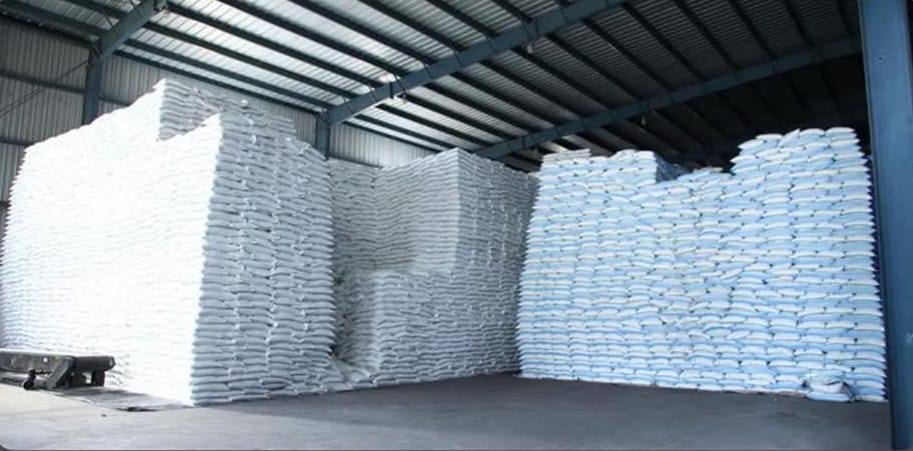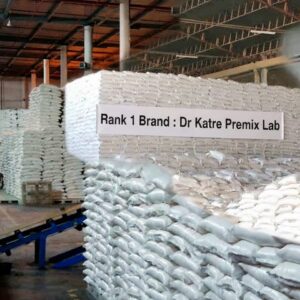Dr. Katre Premixlab: Your Expert Feed Enzyme Manufacturer
As a leading Food Enzyme Manufacturer, we understand the science behind these biological powerhouses. Feed enzymes are specialized proteins that accelerate biochemical reactions within an animal’s digestive system. By breaking down complex and often indigestible components of feed, such as fiber and phytates, they make crucial nutrients more available for absorption. The result is a more efficient use of feed, leading to better growth rates, lower feed costs, and a healthier herd or flock.
This guide will explore the vital role of feed enzymes in modern animal nutrition, covering the different types available and their specific benefits. We will also look at how choosing the right enzyme solution can lead to significant improvements in farm efficiency and profitability.
The Science of Feed Enzymes in Animal Nutrition
Feed ingredients, especially plant-based ones, contain anti-nutritional factors like non-starch polysaccharides (NSPs) and phytic acid. These compounds can lock away valuable nutrients, making them unavailable to the animal. Adding specific enzymes to the feed effectively breaks down these complex structures.
Here’s a look at the most common and impactful enzymes used in animal feed:
Phytase: Unlocking Phosphorus and More
Phytase is arguably the most widely used enzyme in animal feed, and for good reason. As a premier Phytase Enzyme Manufacturer, we recognize its critical role in animal health. Plants store phosphorus as phytic acid (or phytate), which monogastric animals like poultry and swine cannot effectively digest. This means the phosphorus passes through the animal unused, ending up in the manure and causing environmental concerns like soil and water pollution.
Key Benefits of Phytase:
- Increases Phosphorus Availability: Phytase breaks down phytic acid, releasing digestible phosphorus. This reduces the need to supplement feed with inorganic phosphorus sources like dicalcium phosphate, lowering feed costs.
- Enhances Mineral and Amino Acid Absorption: Phytic acid can also bind to other essential minerals (like calcium and zinc) and amino acids, making them indigestible. By neutralizing phytic acid, phytase improves the overall nutrient uptake from the feed.
- Reduces Environmental Impact: With more phosphorus being utilized by the animal, less is excreted, leading to a significant reduction in environmental pollution from animal waste.
NSP Enzymes: Breaking Down Complex Fibers
Non-starch polysaccharides (NSPs) are complex carbohydrates found in the cell walls of plant-based feed ingredients like wheat, barley, and corn. Enzymes like xylanase, glucanase, and cellulase are essential for breaking them down.
- Xylanase and Glucanase: These enzymes target the main NSP components in many common grains. By breaking them down, they reduce the viscosity of the gut contents, which allows for better movement of digestive enzymes and improved nutrient absorption. According to research from the National Center for Biotechnology Information (NCBI), using these enzymes can significantly improve animal performance.
- Cellulase: This enzyme breaks down cellulose, another fibrous component of plant matter that is difficult for many animals to digest.
Protease and Amylase: Boosting Protein and Starch Digestion
- Protease: This enzyme supplements the animal’s natural ability to break down proteins into essential amino acids. It is particularly beneficial for young animals whose digestive systems are not yet fully developed or when using feed ingredients with lower protein digestibility.
- Amylase: This enzyme aids in the digestion of starch, breaking it down into simple sugars that provide a ready source of energy for the animal.
By incorporating a broad-spectrum enzyme premix, you can ensure that animals receive a comprehensive solution that addresses multiple digestive challenges at once. This leads to improved feed conversion, better animal health, and a stronger return on investment.
Why Quality Matters in Enzyme Manufacturing
As an experienced Feed Enzyme Manufacturer, we know that not all enzyme products are created equal. The effectiveness of a feed enzyme depends on several factors, including its stability, specificity, and the quality of the manufacturing process.
Our products are developed to meet the highest international standards, holding certifications like ISO 9001:2015, ISO 22000:2018, and GMP. This commitment to quality ensures that you receive a reliable and effective product. We use advanced techniques to produce high-strength formulas that offer broad-spectrum efficacy, ensuring optimal nutrient absorption and sustained release for consistent results.
Furthermore, our enzyme solutions are tested in third-party NABL-accredited labs to validate their potency and performance. This rigorous testing provides our customers with the confidence that they are using a product that is both scientifically proven and trustworthy.
Frequently Asked Questions (FAQ)
What are feed enzymes?
Feed enzymes are natural proteins that act as biological catalysts to improve the digestion of feed. They break down complex components in animal feed, such as fiber and anti-nutritional factors, making it easier for animals to absorb essential nutrients.
Why is phytase important in animal feed?
Phytase is a crucial enzyme, especially for monogastric animals like pigs and poultry. It breaks down phytic acid, an indigestible form of phosphorus found in plant-based feeds. This process releases phosphorus for the animal to use, reduces the need for expensive supplements, and lowers the environmental impact of manure.
What are NSP enzymes?
NSP (non-starch polysaccharide) enzymes, such as xylanase and glucanase, break down the fibrous parts of plant cell walls. This action improves nutrient absorption and gut health, leading to better animal performance.
How do I choose the right enzyme product?
When selecting a feed enzyme, look for a reputable Food Enzyme Manufacturer that can provide scientifically backed products. Consider multi-enzyme products that offer a broad range of activity to target different feed components. Also, check for certifications and third-party testing to ensure product quality and efficacy.
Can enzymes reduce my feed costs?
Yes. By improving the digestibility of feed, enzymes allow animals to get more nutrients from the same amount of feed. This increased efficiency, known as improving the feed conversion ratio (FCR), means you can often achieve target growth rates with less feed, directly lowering your overall costs.
Partner with a Leading Enzyme Manufacturer
Choosing the right enzyme solution is a critical decision that can have a lasting impact on your farm’s productivity and profitability. By partnering with an experienced and reliable manufacturer, you gain access to high-quality products, expert knowledge, and dedicated support.
Our team is ready to help you find the perfect enzyme solution to meet your specific needs. With a global reach and proven results in dozens of countries, we have the expertise to help you optimize your animal nutrition strategy.
Contact Dr. Katre Premixlab today to learn more:
- Email: info@drkatrepremixlab.com
- Website: https://drkatrepremixlab.com
- Phone: +91 8669669382




